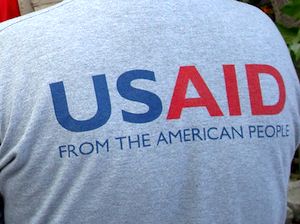A USAID Worker’s Suicide Raises the Flag on a Troubling Issue
The suicide of a USAID worker, the first in a decade of deployments to Iraq and Afghanistan, spotlights a gap in policy, and a potentially wider problem.
In early August, a 33-year-old worker for the U.S. Agency for International Development home on medical leave from his second tour in Afghanistan checked into a motel in western Michigan and hanged himself in the shower. Michael C. Dempsey’s suicide was the first in a decade of USAID work in Afghanistan and Iraq, but Foreign Policy magazine reports that it raised a troubling issue for the agency: Is it doing enough to ensure the mental well-being of its civilian workers exposed to war?
USAID has deployed more than 2,000 “direct hires” through Iraq and Afghanistan since 2003. Many of them, like Dempsey, are considered “foreign service limited” (FSL) officers. That means they enjoy many of the same benefits of Foreign Service officers, but can’t be promoted or moved to other offices or departments. About 150 FSL officers are in Afghanistan currently. After each deployment, each one gets a “high-stress outbrief,” but due to privacy concerns, USAID isn’t able to contact any of them after they leave federal service to ensure that they aren’t suffering from deployment-related issues or other maladies, like alcohol abuse or depression. After a deployment, supervisors may only hear about those kinds of problems unofficially, through the bureaucratic grapevine, because of the way privacy regulations govern civilian agencies. And even then, if a problem is identified, USAID, unlike the Defense Department, can’t force an employee to undergo treatment
In other words, USAID management doesn’t know what happens to its workers once they leave their posting country. So although the suicide of Dempsey, a worker on leave, got its attention, USAID officials have no way of knowing the mental health problems their former workers may be wrestling with. Or, for that matter, how many have, like Dempsey, killed themselves.
Military suicides have been well chronicled, though surprisingly about half are by personnel with no combat experience. Although the Pentagon scrambles to find solutions, the underlying causes remain difficult to discern. In this age of a volunteer military, are the armed forces attracting higher numbers of recruits with pre-existing problems that become uncontrollable with exposure to war and military life? Or is it the exposure to or anticipation of battle that does it? Or a mix?
Among civilian war-zone workers, the questions become even murkier. In Dempsey’s case, a close friend was killed by an IED on an outing that should have included Dempsey. He struggled with “survivor’s remorse” and was in counseling at the time of his suicide, friends told Foreign Policy. But apparently it wasn’t enough. As the magazine reports, “the suicide forces the agency to deal with an inescapable problem: how to help its employees who deploy to the same war zones as the military but who don’t always have access to the same kind of assistance.”
—Posted by Scott Martelle.
Your support matters…Independent journalism is under threat and overshadowed by heavily funded mainstream media.
You can help level the playing field. Become a member.
Your tax-deductible contribution keeps us digging beneath the headlines to give you thought-provoking, investigative reporting and analysis that unearths what's really happening- without compromise.
Give today to support our courageous, independent journalists.






You need to be a supporter to comment.
There are currently no responses to this article.
Be the first to respond.